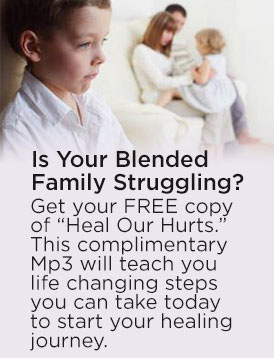by admin | Jun 12, 2015 | Family Counseling
With hardly any thought at all, you can probably say whether, in your family of origin, you played the role of the responsible one or the rebel, the people pleaser or the mascot. Roles serve an organizing function. In a family, roles sort out each person’s relationship to the group. While there’s nothing inherently wrong with roles, they become a problem when they’re rigid and shape poor choices as a teenager or adult.
Roles are especially harmful in families where abuse and/or addiction occur. They become a vain attempt to control a situation that is chaotic and frightening. Also, as John Bradshaw explains in On the Family, roles function to project the image of the happy family, preserving denial that anything is wrong.
Based on the work of Virginia Satir, Claudia Black and Sharon Wegscheider, below are the common roles that children play in the family, as well as that role’s impact on adult life.
The Hero
The hero is the responsible one. She/He gets good grades in school, is goal oriented and self-disciplined. From the outside, they appear on top of their game. Internally, however, the hero bears the burden of making the family look good. They also believe that if they are perfect enough, the family problems will go away.
Work: As an adult, the hero is often successful, reaching for excellence in their occupation. The trouble is, “excellent” is never good enough. If they are not at the top, they are nowhere.
Relationships: Whether as breadwinner or head of the household, the hero will take charge, needing to lead and be in control. This can create discord or inequality in relationship.
Self-esteem: Although a leader, the hero still relies upon the approval of others for their own self-worth. To be healthy, they need to realize that they don’t have to prove their worthiness and that life can be joyful regardless of achievement.
The Placater or People Pleaser
The placater tries to ease and prevent any trouble in the family. He/she is caring, compassionate, and sensitive. People pleasers deny their own needs, are anxious and hypervigilant.
Work: The placater will find themselves care-taking and facilitating in their work environment. They may be drawn to service occupations; however, in order to truly help others, they must face their need to please.
Relationships: The placater believes that if they take care of their partner that person will never leave. They may lose themselves in their partner’s needs, becoming more caregiver than equal.
Self-esteem: The people pleaser often feels that they have no value except for what they can do or be for another person. To be healthy, the placater needs to find their own value within.
The Scapegoat or Rebel
The scapegoat is the family member who is blamed for the trouble in the family. S/he acts out his/her anger at any family dysfunction and rebels by drawing negative attention to him/herself. While s/he is more in touch with his/her feelings than the other roles and is often creative, in school s/he gets poor grades and is often in trouble.
Work: No one expects much of the scapegoat and, too often, s/he agrees, choosing jobs that are beneath his/her abilities.
Relationships: The scapegoat will be drawn to friends and relationships that are certain to meet with parental disapproval. This will please him/her, despite the fact that his/her family may be right.
Self-esteem: While the scapegoat rebels against the family, rebels also internalize their poor opinion of themselves and thus fails to acknowledge their talents. S/he is a screw-up, s/he will say, proudly. To be healthy, s/he needs to realize that s/he’s much more than that.
Other Family Roles
The Mascot is the class clown with the uncanny ability to relieve stress and pain for others. But there’s something missing that s/he won’t find until s/he looks beneath the humor façade and faces his/her own pain.
The Lost Child is quiet, withdrawn, lonely, and depressed. S/he doesn’t draw attention to him/herself because s/he doesn’t want to be a burden. However, what s/he wants most is to be seen and loved, and to be healthy, s/he must allow herself to be visible.
Roles may have shaped our childhood but they need not keep us in chains. Acknowledging the gifts and detriments of the role or roles that you played as a child can help you honor yourself, as well as help you make wise choices as an adult.
Understanding your family of origin role and how it plays into your adult life can be a break through in awareness of how you continue to play your role today. If you are a parent, you can also begin to discern the roles your children are playing in the family and help them to make changes in how they interact with others at an earlier age.
Imagine the possibilities of family counseling in San Diego at The Center for Family Unity.
by admin | Jun 12, 2015 | Family Counseling
Implementing Change and Avoiding Chaos – Discovering Your Parenting Style
“Sit down! Stop it! Go to your room.”
“Honey, you are acting a little harsh and mean.”
“Noooooooo! I won’t do it!”
How can you change the atmosphere in your home and avoid the chaos that stems from the differing parenting styles of biological parents and stepparents?
First, it’s important to understand the parenting styles of those involved in disciplining and interacting with your children. When seeking to learn how to make changes, a trusted family counseling center in San Diego is important.There are five steps:
- We determine what your parenting style is and how it affects your children.
- Your parenting style is influenced by your beliefs. Your beliefs come from many important areas:
- Traditions: You are strongly influenced by the culture you live and are raised in. The customs you practiced as a child in your family will either mesh with or collide with those practiced by your partner. When your ex remarries, you may have no control over the traditions that will be placed upon your children.
- Spiritual beliefs: Your spiritual beliefs also strongly influence how you raise your children. How we treat each other, where we practice our spiritual beliefs, how much time we spend in church, temple or synagogue along with the way our spirituality affects:
- Functional Beliefs
- Privileges
- Social Engagements
- Morals
- We identify what needs to change, explore what your boundaries are and how your boundaries affect your parenting as well as other relationships in your life.
- Boundaries are where you end and someone else begins. They communicate what you will and will not do.
- Your boundaries may sound something like this:
- “Yes I will budget some money so you can participate in soccer.”
- “No, I can’t take time away from attending church to drive you across town.”
- We teach you how to implement change and develop rules.
- We all dislike some rules. What is your attitude about rules and how does this rub off on your children?
- Teaching them that rules are actually for their benefit helps children feel safe as rules are like a study fence that keeps the good in and the bad out.
- We can explore six steps that will lead you to making changes:
- set the change and arrange a meeting with your family
- share your concerns
- meet to discuss specifics
- meet to present the rules
- meet to present the consequences for each rule
- make it happen
- We help you develop a belief system for discipline, exploring why it’s so important and how to avoid multiple set of rules that confuse your children.
- By making rules current and relevant, you will help foster a closer, more collaborative relationship with your kids.
- Authoritative, controlling, and permissive are three of the most prevalent parenting styles that simply do not work any longer in our culture. Perhaps you have noticed signs of all three in your own habits. On the other hand, maybe you have gained some good tips on avoiding them altogether.
- Remember, no matter what culture we live in, kids need to be parented with unconditional love. Your love is not a reward for their good grades, staying out of trouble, helping around the house, or making the all-star team.
- With your words and actions, express to your kids there is nothing they could do to make you love them more, and nothing they could do to make you love them less.
- If you parent with liberal amounts of love and grace, you will not have to worry about this new culture turning your kids astray
- Finally, we explore how to develop rules, establish consequences and why consequences are necessary.
Parenting today is a complicated endeavor and you need support! Let us be the trusted and experienced support you need and deserve.
by admin | Jun 12, 2015 | Marriage Counseling
Set your second marriage up for success with these steps.:
- Precaution: What’s the rush? If the statistics tell us you have an 85% chance of failure if you remarry less than two years after your divorce, why would we jump in so quickly? What’s your motive?
- Money: if we are in love and planning to marry eventually, it would be so much easier financially if we were to join households now.
- I learned so much from my divorce that I know what to accept and not accept
- I am a much better person with this partner. The kids benefit and there is less stress for all of us.
- I can’t wait because……( your answers)
- How much personal growth work have you done to ensure you don’t choose the same type of partner disguised in a different package?
- We suggest you attend a Keeping the Love You Find workshop to discover the patterns of connection you have made and how to discover the purpose of marriage.
- Divorce Care groups
- Personal counseling
- Preparation: Intentional dating
- Deepening the step parent/step child relationship
- Pre-Marital education and counseling
- Brief, skills-based educational programs for couples increase couple satisfaction, improve communication skills, reduce negative conflict and may prevent separation and divorce
- Possibilities:
- Strength based marriage and parenting
- Priority:
- Being each other’s safe harbor
- Quality time for just the two of you
- Negotiate household rules and parenting strategies
- Promise
- To look for the good in each other
- To work as a team
- To seek support in a crises
- To never, never use the D-word!
by admin | Jun 12, 2015 | Family Counseling
Creating and living by your own rules and values Even when your Ex Doesn’t Respect Yours
One of the reasons you divorced could have been a drastic difference in beliefs and values. The differences you had in marriage will continue to be a thorn in the flesh unless you quickly learn how to separate yourself, your children, and your new spouse from your exes and theirs.
Begin thinking about the relationship with your ex as an entirely new one. The old must past and the new begin. The past that you had as a couple no longer exists. Seeking counseling and support will help you grieve what was and move on to what is. This new life centers around your children and how you can raise them in the most healing and supportive manner possible.
It all begins with your mindset and prayer. Before you communicate with your ex, think of the higher purpose involved in your children and their well-being. If you and your ex can communicate, then try to establish guidelines that are similar in each household. Rules around homework issues, curfew, and off limit activities should be followed in both households as much as possible.
But what if you can’t communicate with your ex.?
Unfortunately, past pain and differences can keep parents from setting self aside and moving on. Every intimate relationship has three stages, romance, the power struggle, and finally the partnership. Most couples get stuck in the power struggle and divorce while staying stuck in that stage. This is carried on into the divorced relationship and the fall out is on the kids.
But…he, but… she….
The word but divides, the word and connects. If you say, I want to be able to co-parent with my ex but…that but negates what you just said. It blames and divides. If you say I want to be able to co-parent with my ex and I am willing to…..now you have a connecting starting point.
Now is time to learn how to forgive, love and resolve conflict.
Be imitators of Christ, therefore, as dearly loved children and live a life of love, just as Christ loved us and gave himself up for us as a fragrant offering and sacrifice to God. Ephesians 5:1, 2
As Christians, we know that life is about love. Forgiving and allowing your emotional wounds to be healed are essential for moving on to greater freedom and happiness.
God calls us to a higher calling and the relationship you are able to cultivate with your ex is worth the time and effort. Why? Because it affects the most important things you will leave behind on this earth, your children.
For more information about how to learn to forgive, love, resolve conflict and create rules that work; contact The Center for Family Unity for upcoming free informative workshops.
by admin | Jun 12, 2015 | Marriage Counseling, Premarital Counseling
In an effort to increase the resources available at our facilities,  The Center for Family Unity has announced the addition of Miriam Torres, an intern bilingual (Spanish/English) marriage and family therapist. She will be specifically assigned to working with couples, families, and individuals; providing relationship counseling with the aim to help them overcome emotional problems.
The Center for Family Unity has announced the addition of Miriam Torres, an intern bilingual (Spanish/English) marriage and family therapist. She will be specifically assigned to working with couples, families, and individuals; providing relationship counseling with the aim to help them overcome emotional problems.
The inclusion of the Miriam Torres as a new marriage and family therapist is a strategic move to fulfill the mission of the Center for Family Unity by providing additional effective alternative counselor techniques, including equine and pet therapy.
“She will also be helping our clients navigate life changes and building on their unique strengths,” says
Kellye Laughery, Director, The Center for Family Unity.
Miriam, who has been a parent educator for more than two years and offers parent consultation for behavior management and courses on parenting, also practices premarital counseling and works with traditional as well as alternative and blended families. She will be a great asset to the Center when dealing with co-parenting issues.
Speaking on her own behalf, Miriam says: “I couldn´t be happier to be part of The Center for Family Unity. I’ve known Kellye for a couple of years, and periodically running into each other at different trainings and events. I always liked her approach to therapy, admired her preparation, and felt identified with many things, like her interest in blended families. So when I finally got the chance to see where she works, I knew I wanted to be part of it.”
She further adds that The Center for Family Unity oozes warmth, safety, creativity, playfulness, kindness and inspiration, and that she feels very fortunate that she got the opportunity to work there, where she’ll be using an Emotionally Focused Therapy approach to help couples and families.
Miriam is trained in Couples Therapy at the Gottman Relationship Institute and is very passionate about positive psychology. She is currently studying a PhD in Psychology-Expressive Art Therapy as well as Equine Assisted Therapy, (EAGALA.) The Center for Family Unity affords her the opportunity to use alternative methods to traditional talk therapy, like Expressive Arts Therapy, in her counseling sessions. She will be an excellent addition to the Center as we continue to grow and improve.









